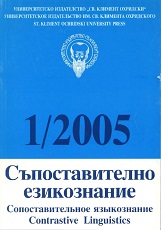
We kindly inform you that, as long as the subject affiliation of our 300.000+ articles is in progress, you might get unsufficient or no results on your third level or second level search. In this case, please broaden your search criteria.

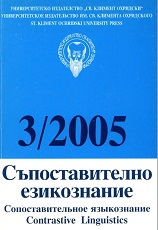
Review of: F. Vicario (ed.). Carte friulane del Quattrocento dall’ archivio di San Cristoforo di Udine. Udine, SocietaFilologicaFriulana, 2001. 230 стр.
More...
Review of: Ив. Попова-Велева, Р. Тонев, Вл. Драгнев. Нов учебен френско-български и българско-френски речник /Dictionnaire francais-bulgare et bulgare-francais (под общата редакция на Ив. Попова-Велева). Велико Търново, „Слово“, 2004. 796 стр.
More...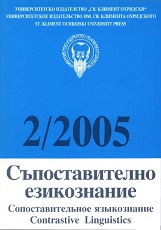
Review of: М. Orožen. Razvoj slovenske jezikoslovne misli. Maribor, Slavistično društvo Maribor [Zora 26], 2003, 542 p.
More...
Review of: Р. Radić. Turski sufiksi u srpskom jeziku (sa osvrtom na stanje u makedonskom i bugarskom). [Biblioteka južnoslovenskog filologa. Nova serija, knj. 17.] Beograd, Institut za srpski jezik SANU, 2001. 211 p.
More...
Review of: E. Baschewa. Objekte und Objektsätze im Deutschen und im Bulgarischen. Eine kontrastive Untersuchung unter besonderer Berücksichtigung der Verben der Handlungssteuerung. Peter Lang. Europäischer Verlag der Wissenschaften, Frankfurt am Main, 2004, 213 р.
More...
Review of: Е. F. К. Koerner. Essays in the History of Linguistics [Studies in the history of the language sciences, Volume 104]. John Benjamins Publishing Company. Amsterdam / Philadelphia, 2004. 271 pp.
More...![Syntax in Antiquity [Orbis I Supplementa, tome 23] (edited by Pierre Swiggers and Alfons Wouters)](/api/image/getissuecoverimage?id=picture_2005_69846.jpg)
Review of: Syntax in Antiquity [Orbis I Supplementa, tome 23] (edited by Pierre Swiggers and Alfons Wouters). „Peeters“. Leuven - Paris - Dudley, MA, 2003. 304 p.
More...
Review of: P. Lauwers. La description du français entre la tradition grammaticale et la modernité linguistique : Etude historiographique et épistémologique de la grammaire française entre 1907 et 1948 [Orbis / Supplémenta, tome 24]. „Peeters“. Leuven - Paris - Dudley, MA, 2004. 777 p.
More...
Review of: Пражката школа: Генеалогия, самопознание, полемики (съставител Добромир Григоров, редактор Маргарита Младенова). Homo bohemicus, 2004, № 1. София, Heron Press, 2004. 108 р.
More...![M. Snoj. Slovenski etimološki slovar. [2. pregledana in dopolnjena izdaja] Ljubljana, 2003. XXVII + 1022 p.](/api/image/getissuecoverimage?id=picture_2005_69846.jpg)
Review of: M. Snoj. Slovenski etimološki slovar. [2. pregledana in dopolnjena izdaja] Ljubljana, 2003. XXVII + 1022 p.
More...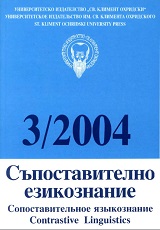
Review of: Е. Ю. Иванова. Логико-семантические типы предложений: Неполныеречевыереализации. [Серия „филологические исследования“] Филологический факультет СПбГУ. Санкт-Петербург, 2003. 208 стр.
More...
Review of: Н. Котова, М. Янакиев. Грамматика болгарского языка для владеющих русским языком. Изд-во МГУ, 2001, 889 с.
More...
Review of: Ем. Пернишка. Синонимен речник на българския език (с антоними и близкозначни думи). София, 2003, 469 стр.
More...
Review of:W. Schmidt. Geschichte der deutschen Sprache. Ein Lehrbuch fur das germanistische Studium. Erarbeitet unter der Leitung von H. Langner und N. R. Wolf. 9., verbesserte Auflage 2004. S. Hirzel Verlag Stuttgart, 2004. 410 p.
More...
Review of: Ан. Петрова. Езиковата метафора и балканската картина на света. Велико Търново, Университетско издателство „Св. св. Кирил и Методий“, 2003. 350 p.
More...
Review of: С. Ристић, М. РадиЬ-Дугонић. Реч, смисао, сазнање (студща из лексичке семантике) Београд, 1999. 276 стр.
More...
Review of: Обучение без граници - език и култура (Сборник с публикации от международната научна конференция, проведена под егидата на Европейската година на езиците в Департамента за езиково обучение от 15 до 17 ноември 2001). София, 2002, 494 с.
More...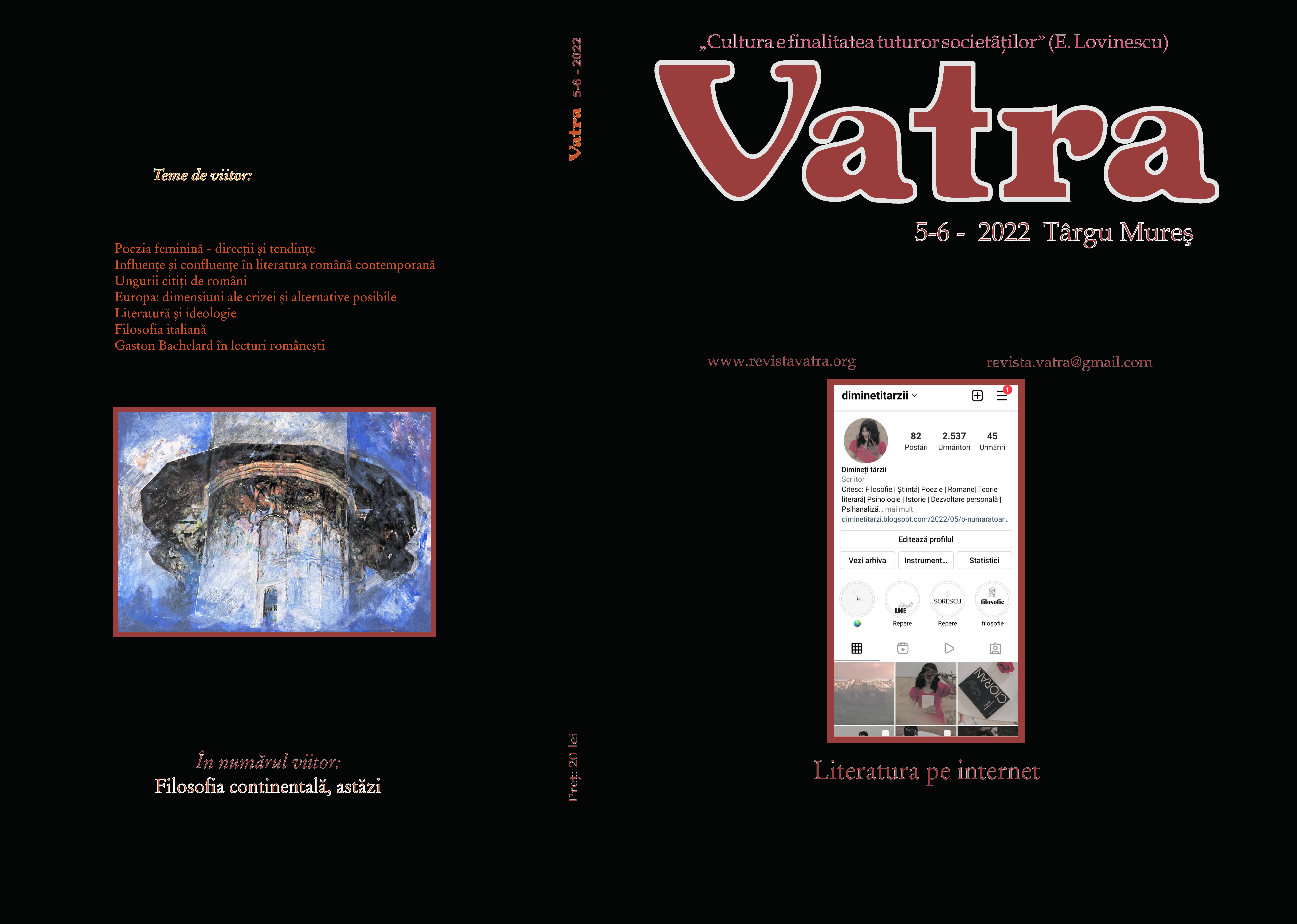
An essay on peace and war, in the context of the Ukraine conflict.
More...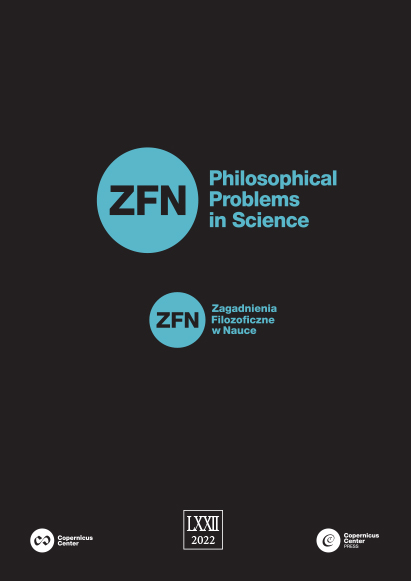
The original view of Joseph Życiński, presented in his book The Structure of the Metascientific Revolution (1988), boils down to the observation that almost before our eyes a great revolution took place, not in science, but in the philosophy of science, that is the meta-scientific revolution. His concept of the meta-scientific revolution grew out of his fascination with the revolution that took place in the foundations of mathematics in the first decades of the twentieth century. Whether a change in science deserves to be called a revolution is determined by whether the transformations it underwent also reached the meta-level. The set of presuppositions underlying transformations on the meta-level Życiński calls ideata. One of the aims of this article is to critically reconstruct the meaning of this term.The action of Życiński’s book takes place mainly on meta-level, but the meta-level constantly interacts with what is happening in science itself. The book sometimes makes an impression as if it were a study of the history of science, but history of science in a specific sense – something like a “sampling” of history with numerous examples. Among the creations of human thought, it is difficult to point to an area that changes more dynamically than science itself, but looking at it from a meta-perspective allows us to grasp those of its features that operate on a much broader scale.
More...